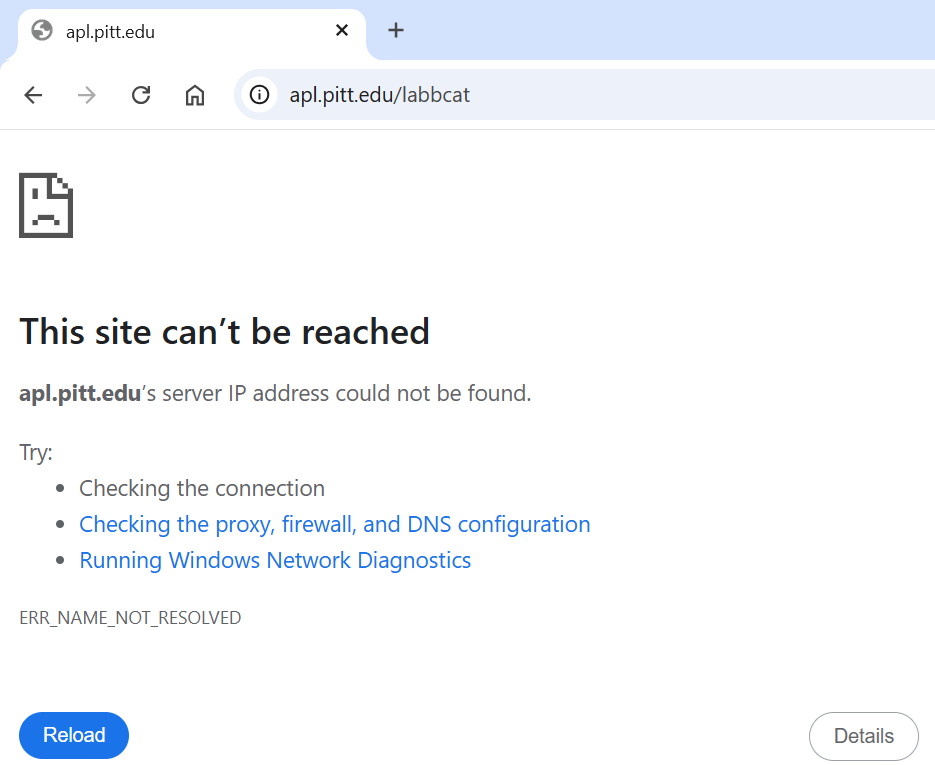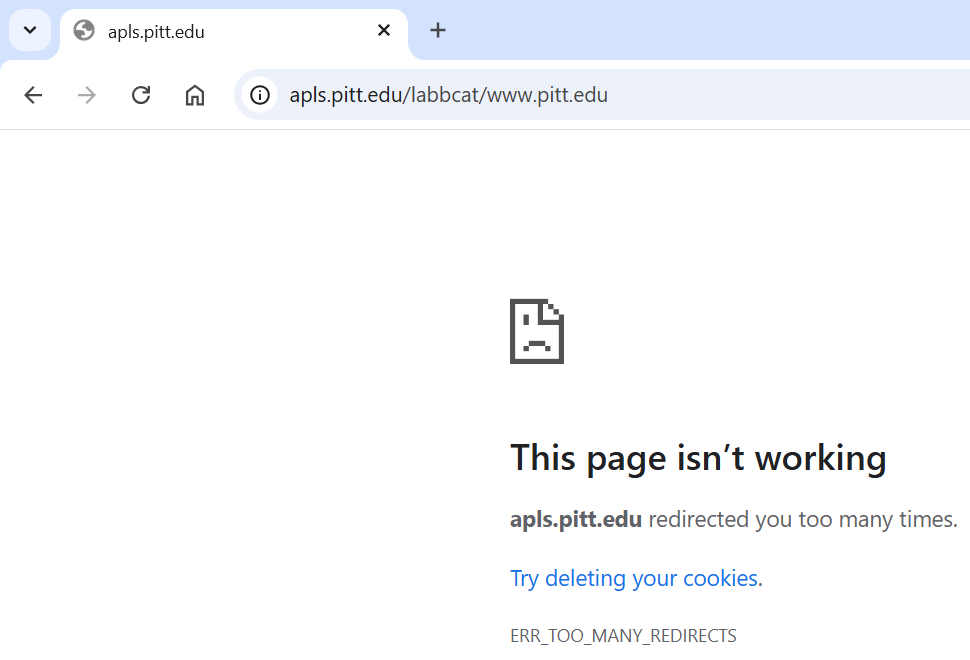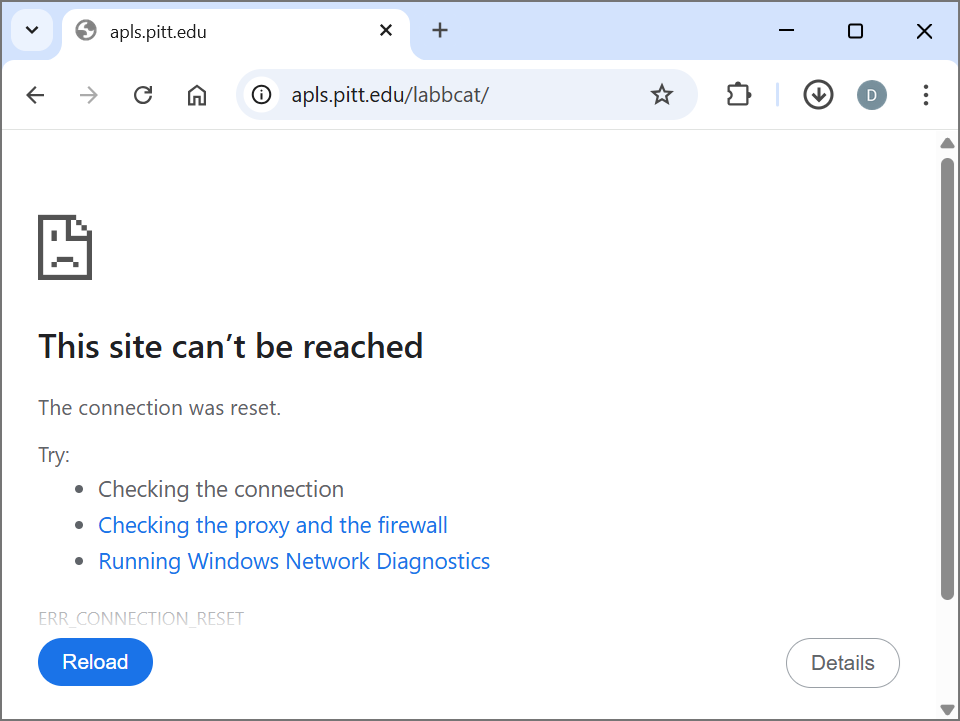Troubleshooting
If you don’t see your issue here, please contact us!
On this page
You can’t log onto APLS
“HTTP Status 404”
| Symptoms | Explanation | Solution |
|---|---|---|
| You get the error message “HTTP Status 404”. | This indicates that you’ve misspelled labbcat in the URL (which is case-sensitive). | Navigate to https://apls.pitt.edu/labbcat |
![A Google Chrome browser window that shows https://apls.pitt.edu/Labbcat in the URL bar, with the page showing the text “HTTP Status 404 – Not Found. Type: Status Report. Message: The requested resource [/Labbcat] is not available. Description: The origin server did not find a current representation for the target resource or is not willing to disclose that one exists. Apache Tomcat/9.0.68”](/APLS/assets/screengrab/no-page/tomcat-404.png)
“Server IP address could not be found”
| Symptoms | Explanation | Solution |
|---|---|---|
| You get an error message like “This site can’t be reached. apl.pitt.edu’s server IP address could not be found.” | This indicates that you’ve misspelled apls.pitt.edu in the URL. | Navigate to https://apls.pitt.edu/labbcat |

“Too many redirects”
| Symptoms | Explanation | Solution |
|---|---|---|
You get an error message like “This page isn’t working. apls.pitt.edu redirected you too many times” or “Could not open the page, too many redirects”. The URL bar might also change to https://apls.pitt.edu/labbcat/www.pitt.edu, which is not a valid URL. | This indicates that APLS has temporarily been taken offline for maintenance. This is rare and usually lasts less than 5 minutes. (Contrary to the error message, clearing your cookies will generally not fix the issue.) | Email us |

“The connection was reset”
| Symptoms | Explanation | Solution |
|---|---|---|
| You get an error message like “This site can’t be reached. The connection was reset.” | This indicates a larger issue with IT systems at Pitt, affecting the server that APLS runs on. These are very rare but can last for unknown amounts of time. (Contrary to the error message, checking the proxy/firewall or running network diagnostics will generally not fix this issue.) | Email us |

Username/password incorrect
APLS passwords are case-sensitive (usernames are not), so double-check capitalization. If that doesn’t work, fill out this password reset form, and we’ll get back to you as soon as possible.
You get unexpected search results
Coming soon!
APLS is slow
APLS is usually pretty fast! To benchmark APLS’s speed, we ran the same search query multiple times at different times of day: searching participant CB01 for i on the segment layer (i.e., all time-aligned tokens of the /i/ vowel), with none of the check-box options selected, showing 1 word before/after each match.
APLS might be running slowly for you if:
- you’ve requested a computationally expensive operation, such as:
- a particularly complicated search query (more than 5 layers and/or across several words)
- exporting a lot of audio data
- selecting a lot of layers to display on a transcript, especially if it’s a longer sound file
- there are lots of users accessing APLS at the same time you are (more than 25)
- we happen to be adding a feature or doing maintenance while you’re using APLS
- there’s some other unexpected slowdown
You can always run the benchmark search mentioned above to see if APLS is running slower than usual (cases #2–4). If so, we’d recommend waiting a little bit and trying again. If APLS is still slower than expected for even the benchmark search, please email us.
